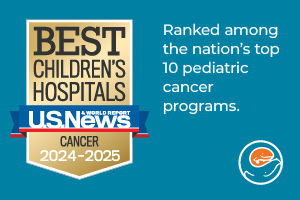High-Risk Leukemia Program
What is high-risk leukemia?
“High-risk” leukemia (loo-KEE-mee-uh) is cancer of the blood that is harder to treat and more likely to come back after treatment. Doctors say leukemia is high-risk if:
- When your child is first diagnosed, the cancer cells show signs like abnormal chromosomes or certain proteins on the cell surface that are known to resist treatment or make the leukemia more likely to come back
- It does not go into remission quickly with treatment (refractory)
- It comes back after treatment (relapsed or recurrent)
- A bone marrow transplant is likely to be needed as part of treatment
If your child’s leukemia is high-risk, they need a different approach. Our High-Risk Leukemia team will assess your child, review all the options and recommend the best treatment for them. Your family can consult us about the best care possible for your child either in-person or through a phone visit. After reviewing all the medical records you provide, we can see your child in the clinic or set up a call with your family and child’s doctors to discuss the best approach.
Our doctors are known worldwide for improving care and cure rates for childhood leukemia. We treat children and young adults with all types of leukemia, including relapsed acute lymphoblastic leukemia (ALL) and acute myeloid leukemia (AML).
What’s special about the High-Risk Leukemia Program at Seattle Children’s?
Seattle Children's provides the best leukemia care for kids in the Pacific Northwest region. The High-Risk Leukemia Program, part of the Leukemia and Lymphoma Program, provides specialized care to children with the toughest cases of leukemia.
We leave no stone unturned to find the best possible treatment options specific to your child. Our team is experienced in delivering therapies designed to improve survival and quality of life.
From first visit to follow-up, our experts in high-risk leukemia diagnosis, care and research will work as a team to give your child seamless care. The close collaboration between high-risk leukemia experts across various specialties – including bone marrow transplant and immunotherapy clinical trials – sets us apart from other pediatric hospitals.
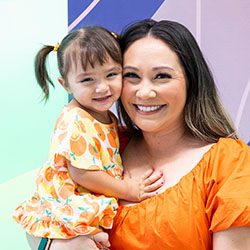 “Our confidence in Seattle Children’s team superseded our expectations and I think it was the best place we could have been for cancer care.”
“Our confidence in Seattle Children’s team superseded our expectations and I think it was the best place we could have been for cancer care.”
— Hayley, mom of Seeley, who was treated for high-risk leukemia
-
Advanced diagnostics and personalized medicine
- In addition to standard diagnostics, our team uses state-of-the-art tests like molecular profiling and next-generation sequencing (NGS). We examine your child’s cancer cells for certain proteins that can serve as targets for treatment and starting points for the design of new drugs.
- These tests help us find what is different about your child’s leukemia and identify the best treatment options for them. Whenever possible, we use results from NGS to match your child with therapies that target their specific cancer. This approach is called precision (or personalized) medicine. These therapies could be medicines already approved for another disease or clinical trials of new treatments.
- We watch your child closely during treatment, using advanced tests to track how they are doing. This lets us know sooner if a different approach is needed.
- In addition to targeted therapies, we offer advanced treatment options such as new chemotherapies, immunotherapies, radiation therapy and bone marrow transplants.
-
Seamless care from world-class experts
Our entire focus is on helping your child beat their disease and thrive. Our multidisciplinary team of top experts coordinates all aspects of your child’s diagnosis and care.
- To create a custom treatment plan for your child, our whole team will talk in detail about your child’s case. This includes their diagnosis, treatment and relevant research studies.
- We will explain our recommended treatment plan to you and to your referring doctor. Between visits to the High-Risk Leukemia Program, the plan guides your child’s care at Seattle Children’s. If you choose to get care at another hospital, your child’s referring doctor can use the plan.
- Your child will have comprehensive visits with the High-Risk Leukemia team at key milestones. These include their first visit to Seattle Children’s, before-transplant visit, 100 days after-transplant and 1-year follow-up.
- At each visit, your child will see various combinations of specialists including a childhood cancer doctor (pediatric oncologist), transplant doctor, advanced practice provider (APP), nurse coordinator, pharmacist, social worker and child life specialist.
- As needed, your child also will see experts in infectious disease, cardio-oncology, nutrition, pain management, radiation oncology and palliative care.
- Your nurse coordinator will manage your child’s individualized care all through their treatment, starting from first visit. Your nurse coordinator is your single point of contact who will communicate among all members of your child’s team – including you.
- At Seattle Children's, we work with children and families from around the Northwest and beyond. Whether you live nearby or far away, we can help with financial counseling, schooling, housing, transportation, interpreter services and spiritual care. Read about our services for patients and families.
-
Pioneers in bone marrow transplants and improved outcomes
For most children, treatment for high-risk leukemia includes high doses of chemotherapy medicines and a to replace the body's system for making blood cells and introduce a new immune system. This reduces the risk of leukemia relapse. We work closely with Fred Hutchinson Cancer Center, whose doctors pioneered this lifesaving procedure.
Your child’s cancer doctor and transplant doctor work together to plan and monitor treatment. Our team works with your family through the whole process: preparing for transplant, doing the transplant here at Seattle Children’s and caring for your child as they recover.
-
Research to improve care and cure rates
Visit the Current Research Studies page for a list of leukemia clinical trials enrolling at Seattle Children’s. Children, teens and young adults with leukemia have access to clinical trials through:
- Seattle Children’s Immunotherapy Program, which offers investigational CAR T-cell therapy clinical trials often not available at other hospitals, including our PLAT CAR T-cell clinical trials for leukemia.
- Children’s Oncology Group (COG), the world’s largest consortium of childhood cancer specialists.
- Various research networks, consortia and biotechnology organizations that create and test phase 1 and other early treatments.
- Our partnership with Fred Hutchinson Cancer Center.
As leaders in cancer research, we can offer the very latest leukemia treatments being studied. These include phase 1 clinical trials, which many hospitals do not offer. Early studies are especially relevant for children with high-risk leukemia. Learn more about Dr. Todd Cooper’s leadership with the PedAL Initiative, the first integrated worldwide pediatric acute leukemia effort. Our physician-scientists also do groundbreaking lab research to understand the biology of leukemia and how to fight it.
-
International leadership to improve leukemia outcomes
Seattle Children’s leukemia leaders head numerous international pediatric cancer steering committees, clinical trials and research consortiums. Some of these include the Myeloid Disease Biology Committee at Children’s Oncology Group (COG) which is the largest pediatric oncology consortium in the world, and the Leukemia & Lymphoma Society’s Pediatric Acute Leukemia (PedAL) Initiative that aims to transform leukemia treatment by targeting the specific genetic changes that drive different forms of leukemia.
Our doctors and researchers are strongly affiliated with Fred Hutch and the University of Washington, and collaborations with these leading academic and scientific institutions is helping to set the worldwide agenda for pediatric cancer care and research in areas like leukemia.
High-Risk Leukemia Team
Meet the providers who care for children, teens and young adults with high-risk leukemia.
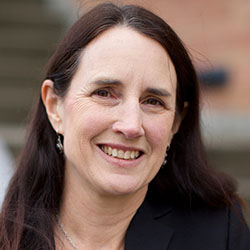 Marie Bleakley, MD, PhD
Marie Bleakley, MD, PhD
Dr. Marie Bleakley is the co-director of the High-Risk Leukemia Program. With funding from the National Institutes of Health, her lab works to identify proteins on leukemia cells that can be used as targets in new immunotherapy clinical trials. Her laboratory developed a new type of T-cell therapy for people with acute leukemia that persists after donor bone marrow transplant. This new therapy is being assessed in a phase 1 clinical trial. Bleakley also leads a national clinical trial of a new way to transplant bone marrow in youth with leukemia, pioneered by her team.
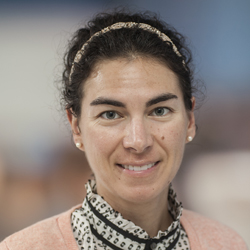 Katherine Tarlock, MD
Katherine Tarlock, MD
Dr. Katherine Tarlock is the co-director of the High-Risk Leukemia Program and she works in the Meshinchi lab to identify genetic changes in AML that can lead to new therapies. She leads 2 national COG clinical trials for targeted therapies in childhood AML. Learn more about AML lab research at Seattle Children’s.
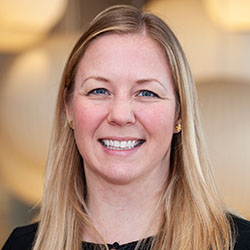 Colleen Annesley, MD
Colleen Annesley, MD
Dr. Colleen Annesley leads the liquid malignancy immunotherapy program at Seattle Children’s, and she is the study chair of several CAR T cell clinical trials for high risk or relapsed acute leukemia and lymphoma.
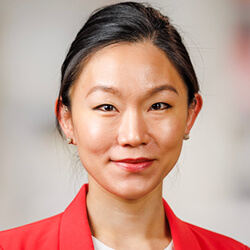 Michelle Choe, MD
Michelle Choe, MD
Dr. Michelle Choe is dedicated to finding ways to use cell and gene therapy to treat advanced pediatric cancers. Her research focuses on cellular therapies for pediatric solid tumors and clinical trials for immunotherapy for pediatric solid tumors.
 Todd Michael Cooper, DO
Todd Michael Cooper, DO
Dr. Todd Cooper is the section head of Oncology and the former director of the Leukemia and Lymphoma Program. Cooper initially helped develop Seattle Children’s High-Risk Leukemia Program and served for eight years as the program’s co-director. He is the co-lead of The Leukemia & Lymphoma Society’s Pediatric Acute Leukemia (PedAL) Initiative, chair of the Children’s Oncology Group (COG) Myeloid Diseases Committee and also the leader of a national COG phase 3 study for children who are newly diagnosed with AML.
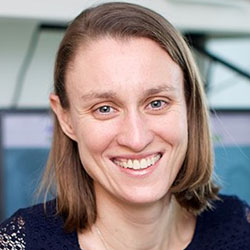 Ann E. Dahlberg, MD
Ann E. Dahlberg, MD
Dr. Ann Dahlberg is the outpatient medical director for the Bone Marrow Transplantation Clinic, which provides care for patients undergoing transplant evaluation as well as long-term continuity care for patients who have received a transplant to treat leukemia or other disorders. As a researcher, her primary focus is investigating the safety and efficacy of cord blood transplantation through clinical trials.
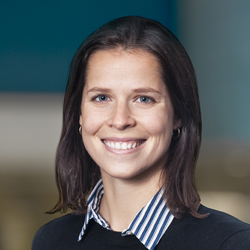 Kelley Annette Erickson, ARNP
Kelley Annette Erickson, ARNP
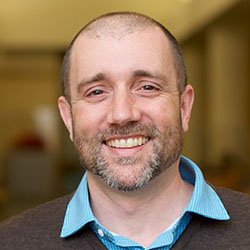 Scott Nicholas Furlan, MD
Scott Nicholas Furlan, MD
Dr. Scott Furlan is a geneticist leveraging cutting-edge next-generation sequencing technologies to advance research and clinical practices in several key areas affecting children with leukemia. His work focuses on: 1) earlier detection and risk stratification of leukemic relapse following transplantation, 2) optimization of adoptive T cell therapies, including CAR-T cells, 3) understanding and managing graft-versus-host disease, and 4) exploring the biology of acute myeloid leukemia.
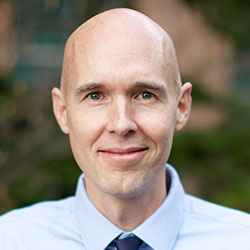 Brandon K. Hadland, MD, PhD
Brandon K. Hadland, MD, PhD
Dr. Brandon Hadland's lab focuses on understanding the origin of hematopoietic stem cells that give rise to blood and immune cells. They study how certain biological signals control the development of these stem cells and how these signals may also contribute to leukemia formation and relapse. The lab aims to discover new methods to engineer and expand hematopoietic stem cells for transplant and gene therapies, and to devise strategies for the early detection and prevention of childhood leukemias.
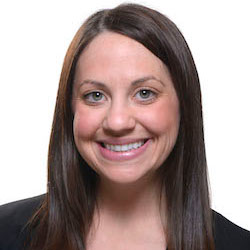 Danielle Kirkey, MD
Danielle Kirkey, MD
Dr. Danielle Kirkey’s research is focused on identifying and validating new leukemia-specific targets and developing novel immunotherapies, particularly CAR T cells, against these tumor-specific targets. Dr. Kirkey has multiple novel CAR T cell therapies against acute myeloid leukemia (AML) in late preclinical stages, which have the potential to deliver a potent targeted therapy to tumor cells with minimal damage to normal cells.
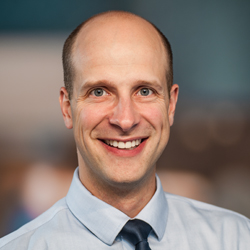 Adam Joseph Lamble, MD
Adam Joseph Lamble, MD
Dr. Adam Lamble leads a national phase 1 clinical trial through COG that is testing a new drug for relapsed or refractory AML. He works on high-throughput drug screening with Dr. Katherine Tarlock. He is also the Medical Director of Seattle Children’s Immunotherapy Program.
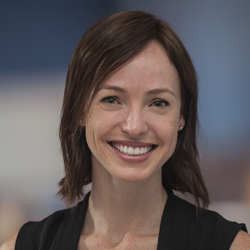 Kasey Leger, MD
Kasey Leger, MD
Dr. Kasey Leger is the director of the Leukemia and Lymphoma Program. Her clinical and research interests focus on blood cancers and cardiotoxicity associated with cancer treatments.
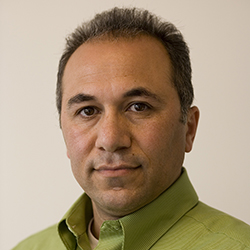 Soheil Meshinchi, MD, PhD
Soheil Meshinchi, MD, PhD
Dr. Soheil Meshinchi is an expert in leukemia biology, next-generation gene sequencing, targeted therapies for AML patients and bone marrow transplants for children with leukemia. He provides scientific leadership for many national and worldwide cooperative research efforts. These include the PedAL Initiative, COG AML Biology Committee, COG Myeloid Disease Biology Committee and the TARGET AML Initiative.
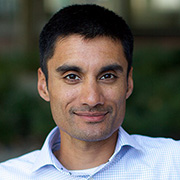 Jay Sarthy, MD
Jay Sarthy, MD
Dr. Jay Sarthy specializes in cancer epigenetics with particular focus on high-risk pediatric hematological and solid malignancies including leukemias, lymphomas and neuroblastoma. His lab is exploring ways to make chemotherapy safer for children and targeting specific cancers using novel epigenetic therapies.
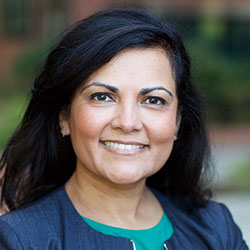 Monica S. Thakar, MD
Monica S. Thakar, MD
Dr. Monica Thakar is the medical director of Inpatient Blood and Marrow Transplantation. Her clinical and translational research explores whether certain immune cells called natural killer (also known as NK cells) can prevent relapse and treat high-risk cancers.
RN coordinators
- Winnie Picazo, RN
- Shauna Sinclair, RN
Contact Us
The High-Risk Leukemia Program is part of our Cancer and Blood Disorders Center. If you would like an appointment, ask your child’s primary care provider to refer you.
If you have a referral or would like a second opinion, contact the Cancer and Blood Disorders Center at 206-987-2106 or by email: HighRiskLeukemiaTeam@seattlechildrens.org. A second opinion is a chance to confirm the features of your child's disease and get advice on the best treatment options.
Providers, see how to refer a patient.
Schedule an appointment
- How to schedule an appointment at Seattle Children’s.
- If you already have an appointment, learn more about how to prepare.
- Learn about resources such as useful websites, videos and recommended reading for you and your family.
Telemedicine at Seattle Children’s
You may be offered a telehealth (virtual) appointment. Learn more.
Paying for Care
Learn about paying for care at Seattle Children’s, including insurance coverage, billing and financial assistance.
“We gather all of a child’s providers under the same roof at the same time, to look at patients from every angle and provide the best possible care every step of the way. Coordinating care in this way also makes life easier for families.” – Dr. Todd Cooper, oncologist in the High-Risk Leukemia Program.
